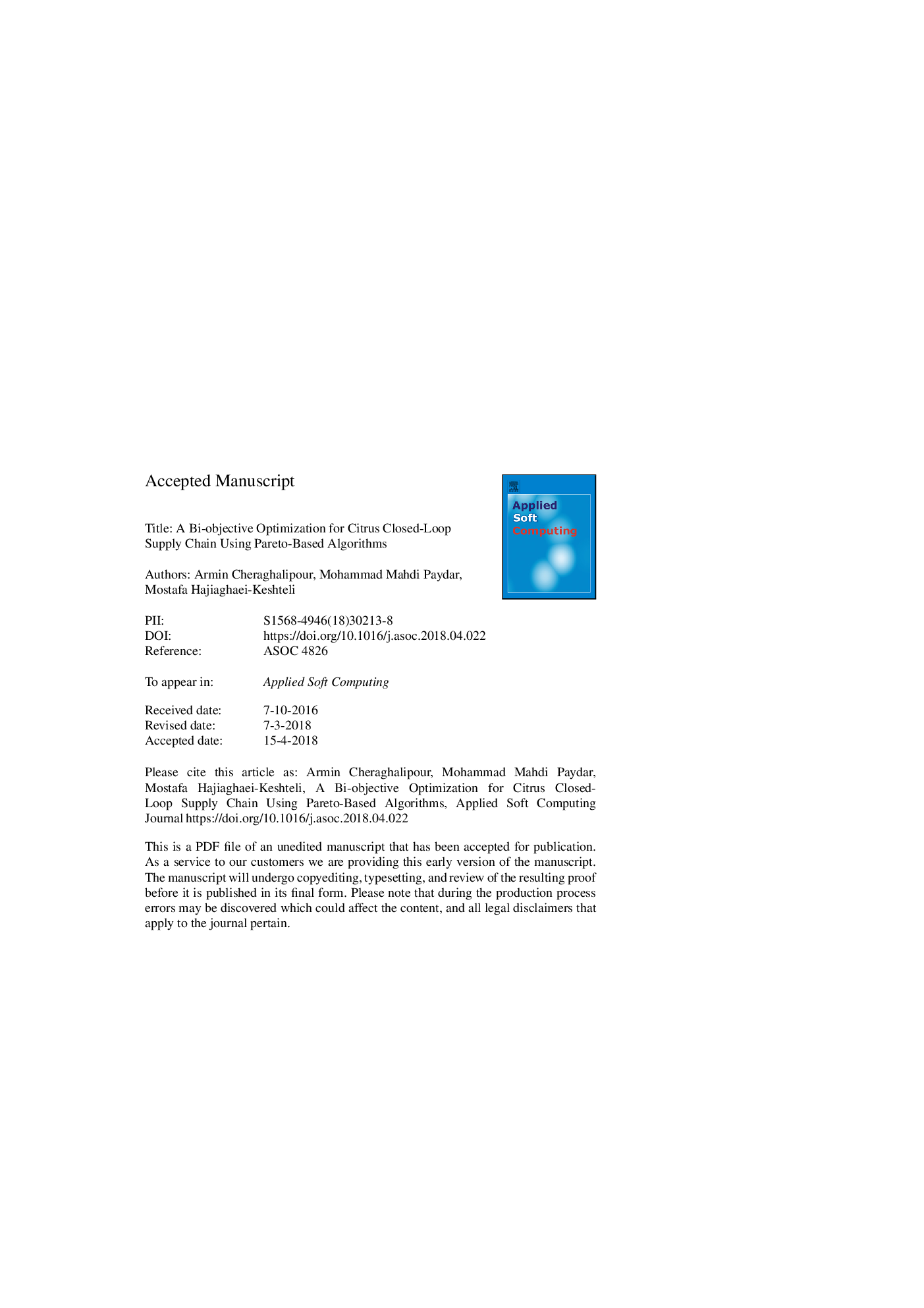| Article ID | Journal | Published Year | Pages | File Type |
|---|---|---|---|---|
| 6903448 | Applied Soft Computing | 2018 | 44 Pages |
Abstract
Over the last two decades, many companies in developed countries have considered reverse logistics as an important process in their supply chain. This stem from the fact that useless materials may be worthwhile and they can re-enter in the supply chain with relatively minor modifications. Specifically, in case of citrus supply chains, the spoiled fruits in each echelon of the chain are one of the main concerns for decision makers in both private and public sectors. Therefore, this paper aims at minimizing costs of citrus closed-loop supply chain (CLSC) and maximizing responsiveness to customers' demand in each sector (forward and reverse). In order to achieve the research objectives, a new mathematical model for a citrus closed-loop supply chain is developed and also a multi-objective Keshtel algorithm (MOKA) is firstly proposed as a solution method. The proposed method is compared with the non-dominated sorting genetic algorithm (NSGA-II), the non-dominated ranking genetic algorithm (NRGA), and multi-objective simulated annealing (MOSA) to illustrate the performance of the proposed MOKA. In addition, a hybrid MCDM technique is proposed for selecting the best algorithm. In order to demonstrate the applicability of our study, a case study of a citrus closed-loop supply chain in northern Iran is presented. The results of the analysis and the case study show that the proposed model and solution method are promising.
Keywords
Related Topics
Physical Sciences and Engineering
Computer Science
Computer Science Applications
Authors
Armin Cheraghalipour, Mohammad Mahdi Paydar, Mostafa Hajiaghaei-Keshteli,
